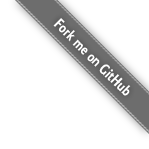What is the fastest Garbage Collector in Java 8?
OpenJDK 8 has several Garbage Collector algorithms, such as Parallel GC, CMS and G1. Which one is the fastest? What will happen if the default GC changes from Parallel GC in Java 8 to G1 in Java 9 (as currently proposed)? Let’s benchmark it.
Benchmark methodology
-
Run the same code 6 times with a different VM argument (
-XX:+UseSerialGC,-XX:+UseParallelGC,-XX:+UseConcMarkSweepGC,-XX:ParallelCMSThreads=2,-XX:ParallelCMSThreads=4,-XX:+UseG1GC). -
Each run takes about 55 minutes.
-
Other VM arguments:
-Xmx2048M -server
OpenJDK version:1.8.0_51(currently the latest version)
Software:Linux version 4.0.4-301.fc22.x86_64
Hardware:Intel® Core™ i7-4790 CPU @ 3.60GHz -
Each run solves 13 planning problems with OptaPlanner. Each planning problem runs for 5 minutes. It starts with a 30 second JVM warm up which is discarded.
-
Solving a planning problem involves no IO (except a few milliseconds during startup to load the input). A single CPU is completely saturated. It constantly creates many short-lived objects, and the GC collects them afterwards.
-
The benchmarks measure the number of scores that can be calculated per millisecond. Higher is better. Calculating a score for a proposed planning solution is non-trivial: it involves many calculations, including checking for conflicts between every entity and every other entity.
To reproduce these benchmarks locally, build optaplanner from source and run the main class GeneralOptaPlannerBenchmarkApp.
Benchmark results
Executive summary
For your convenience, I’ve compared each Garbage Collector type to the default in Java 8 (Parallel GC).

The results are clear: That default (Parallel GC) is the fastest.
Raw benchmark numbers
| Garbage Collector | Cloud balancing 200c | Cloud balancing 800c | Machine reassignment B1 | Machine reassignment B10 | Course scheduling c7 | Course scheduling c8 | Exam scheduling s2 | Exam scheduling s3 | Nurse rostering m1 | Nurse rostering mh1 | Sport scheduling nl14 |
|---|---|---|---|---|---|---|---|---|---|---|---|
|
121211 |
102072 |
239278 |
54637 |
10821 |
14370 |
17095 |
10130 |
7389 |
6667 |
2234 |
|
126248 |
107991 |
282055 |
59944 |
10919 |
14517 |
17843 |
10564 |
7459 |
6676 |
2228 |
|
123150 |
106889 |
255775 |
59087 |
10142 |
13180 |
16346 |
9903 |
6738 |
6018 |
2142 |
|
128591 |
106992 |
279968 |
59406 |
10530 |
13621 |
16591 |
10082 |
7148 |
6319 |
2276 |
|
124415 |
104328 |
276401 |
58234 |
10738 |
13918 |
16952 |
10072 |
7180 |
6320 |
2270 |
|
97146 |
83952 |
259981 |
39522 |
9803 |
11965 |
15195 |
9410 |
5961 |
4985 |
2062 |
Dataset scale |
120k |
1920k |
500k |
250000k |
217k |
145k |
1705k |
1613k |
18k |
12k |
4k |
Relative benchmark numbers
| Garbage Collector | Average | Cloud balancing 200c | Cloud balancing 800c | Machine reassignment B1 | Machine reassignment B10 | Course scheduling c7 | Course scheduling c8 | Exam scheduling s2 | Exam scheduling s3 | Nurse rostering m1 | Nurse rostering mh1 | Sport scheduling nl14 |
|---|---|---|---|---|---|---|---|---|---|---|---|---|
|
-4.05% |
-3.99% |
-5.48% |
-15.17% |
-8.85% |
-0.90% |
-1.01% |
-4.19% |
-4.11% |
-0.94% |
-0.13% |
+0.27% |
|
0.00% |
0.00% |
0.00% |
0.00% |
0.00% |
0.00% |
0.00% |
0.00% |
0.00% |
0.00% |
0.00% |
0.00% |
|
-6.23% |
-2.45% |
-1.02% |
-9.32% |
-1.43% |
-7.12% |
-9.21% |
-8.39% |
-6.26% |
-9.67% |
-9.86% |
-3.86% |
|
-2.67% |
+1.86% |
-0.93% |
-0.74% |
-0.90% |
-3.56% |
-6.17% |
-7.02% |
-4.56% |
-4.17% |
-5.35% |
+2.15% |
|
-2.94% |
-1.45% |
-3.39% |
-2.00% |
-2.85% |
-1.66% |
-4.13% |
-4.99% |
-4.66% |
-3.74% |
-5.33% |
+1.89% |
|
-17.60% |
-23.05% |
-22.26% |
-7.83% |
-34.07% |
-10.22% |
-17.58% |
-14.84% |
-10.92% |
-20.08% |
-25.33% |
-7.45% |
Dataset scale |
120k |
1920k |
500k |
250000k |
217k |
145k |
1705k |
1613k |
18k |
12k |
4k |
Should Java 9 default to G1?
There is a proposal to make G1 the default Garbage Collector in OpenJDK9 for servers. My first reaction is to reject this proposal:
-
G1 is
17.60%is slower on average. -
G1 is consistently slower on every use case for every dataset.
-
On the biggest dataset (Machine Reassignment B10), which dwarfs any of the other datasets in size, G1 is
34.07%is slower. -
If the default GC differs between developer machines and servers, then developer benchmarks become less trustworthy.
On the other hand, there are a few nuances to note:
-
G1 focuses on limiting GC pauses, instead of throughput. For these use cases (with heavy calculations) GC pause length mostly doesn’t matter.
-
This was an (almost) single-threaded benchmark. Further benchmarking with multiple solvers in parallel or multithreaded solving might influence results.
-
G1 is recommended for a heap size of at least
6 GB. This benchmark used a heap size of only2 GBand even that size is only needed for the biggest dataset (Machine Reassignment B10).
Heavy calculations is just one of the many things that OpenJDK is used for: it’s just 1 stakeholder in this community wide debate. If other stakeholders (such as web services) prove otherwise, maybe it’s worth changing the default GC. But show me the benchmarks on real projects first!
Conclusion
In Java 8, the default Garbage Collector (Parallel GC) is generally the best choice for OptaPlanner use cases.





Comments
Visit our forum to comment